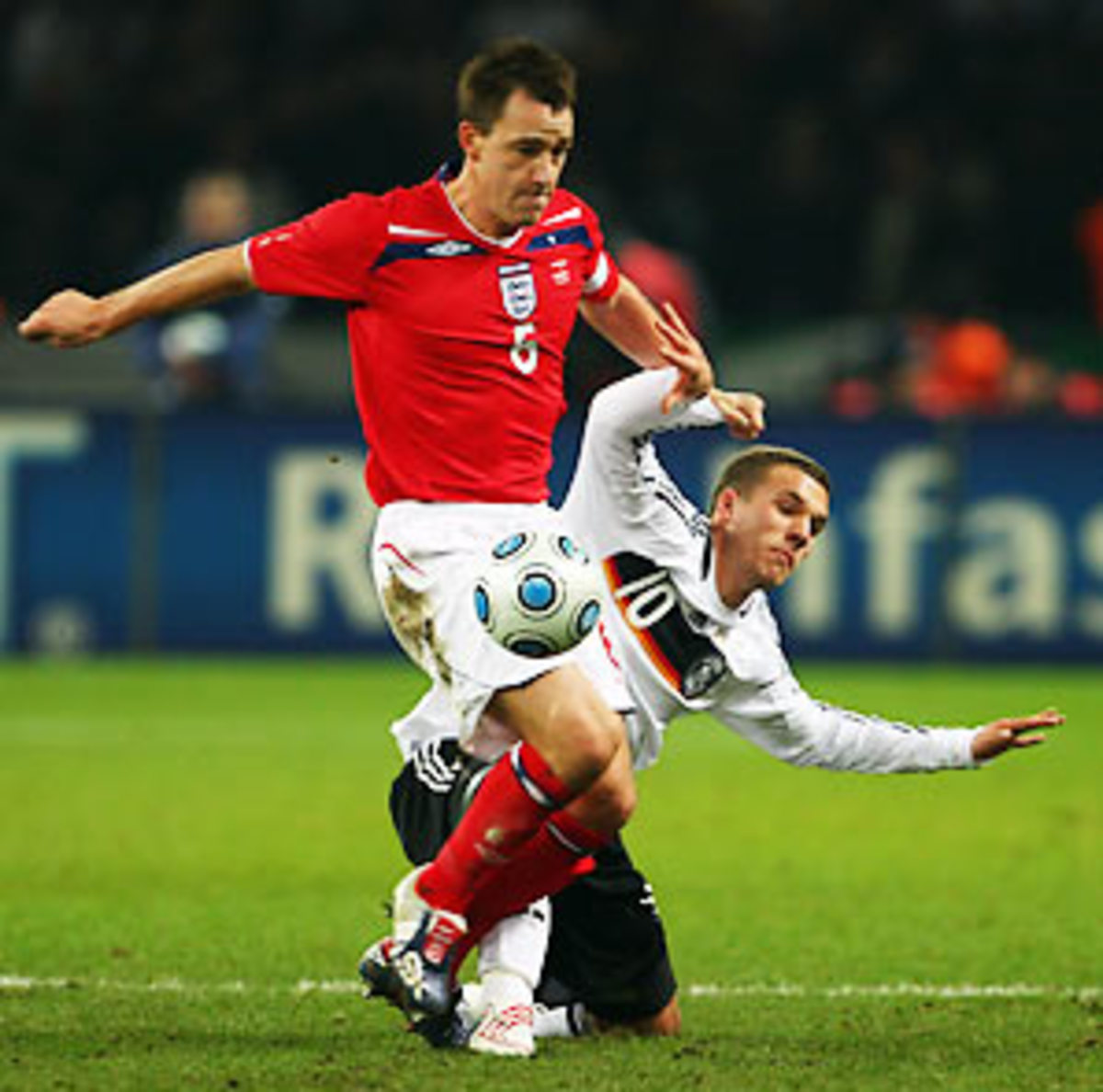'Friendly' date? More like an international inconvenience
In case you hadn't noticed, this week was a "FIFA date," which is when players leave their clubs, meet up with their national teams and face other nations. Sometimes, when qualification for World Cups is at stake, these can be thrilling dates. Most times, it's about as fulfilling as receiving one of those Publisher's Clearinghouse Sweepstakes winner's notifications in the mail.
In fact, much of the entertainment comes before and after the game, when national-team coaches squabble with clubs, players pick up sudden and mysterious injuries which force them to pull out and the media overreacts to the result of a pointless game. And, of course, nothing heightens the tension between club and country like an upcoming friendly. Up and down Europe, from Barcelona (Lionel Messi) to Manchester (Wayne Rooney, Rio Ferdinand) to Milan (Zlatan Ibrahimovic, Kaká), clubs were furiously negotiating with FAs over who was fit and who wasn't, who could travel and who couldn't and for how long.
The issue is simple. There really is no good time for national teams to play friendly matches during the season. Qualifiers are another matter -- clubs will grudgingly put up with them -- but friendlies are a colossal pain in the butt. Players have to travel, they get injured, they get tired, they're not around to train and they end up running around for 90 meaningless minutes. What to do?
The logical thing would be to get rid of them altogether. Except, of course, that would be unfair to national-team coaches, who need this time to work with the players up close and monitor their progress. Otherwise, for most countries, a full five months will elapse between competitive games.
So fine. Let them work with the players. Let them have three-day training camps, maybe even have a behind-closed-doors kickabout. It would be better for the clubs (players tend to get injured in games more than they do in training) and better for the national teams (they'd get three days of training instead of two). In fact, I've spoken to a half-dozen current or former national-team coaches who would prefer it for another reason: Defeat or poor performance in a friendly will inevitably cause more media controversy, something they, frankly, don't need.
So why doesn't this happen? As always, the reason is money. FAs sell television rights and tickets to friendlies. It's a steady source of revenue, particularly for those countries (such as England or France) that have a seldom-used national stadium for which they need to pay. And generally, the smaller the country, the more important national-team games are as a source of revenue (at least in relative terms).
It's not fair to deny the governing bodies of these nations the right to make some money. But perhaps there is another solution. Why not set apart two weeks at the end of the season exclusively for national-team friendlies? Most nations generally play four friendly matches a year. You could easily squeeze these games into those two weeks.
There may have to be some give-and-take and some re-jiggering of the calendar. Fine. End the club season a week earlier. And, in World Cup years, you obviously wouldn't do it (but that's fine, players still get a mini-break and then play friendlies ahead of the tournament). You could easily work around the Copa América and European Championship -- again, maybe you delay the start for a week or so.
If you do it in the right way, it would probably be more lucrative for the FAs as well. For a start, you wouldn't need to play them all on a Saturday or a Wednesday, you could stagger them, which would generate more media interest and TV revenue. You could organize tours. You could promote the game properly (Germany vs. England, played on Wednesday, is a great rivalry, but with the Champions League up next week and some huge games this weekend, attention was elsewhere).
Overall, national teams would get more time with the players in absolute terms, so they benefit. And it may turn out to be more lucrative, too. Benefits to clubs are obvious. As for the players, it extends the season a bit at the end, but it's less travel during the year.
Of course, in absolute terms, the game would benefit from fewer matches. Limit the number of league games in the top-flight to 34 or, better yet, 30 (which would mean 18- or 16-team top divisions). Get rid of the League Cup (in those countries that have it) and make the domestic cup a straight, one-legged knockout competition (like the FA Cup). But of course, that's a really, really tough sell. After all, the players are making so much money, the clubs want to make sure they're getting their money's worth.
So, for now, shifting all the friendlies to the end of the season will have to do.






